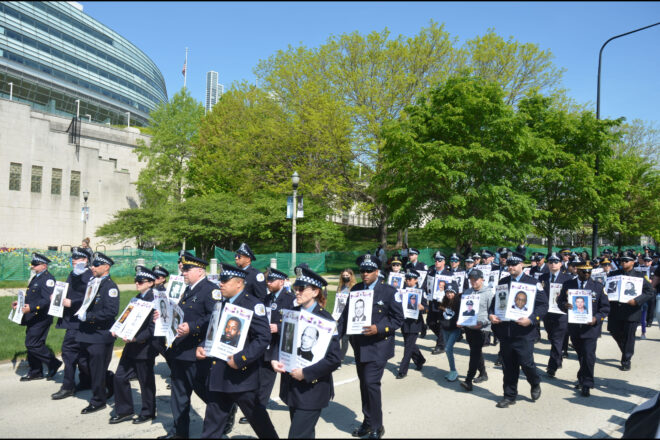The spectacle of lawlessness in Chicago is far too frequent, and far too often involves juvenile offenders and juvenile victims. On 9 February 2022, Chicago Police announced the arrest of a 16-year-old, Anthony Brown for the murder of a 15-year-old Michael Brown (known to Anthony, but not related). On 8 February 2022, Michael was shot twice in head, once in the shoulder, and once in the chest, as he walked home from school. Anthony Brown was driven to the shooting location by another 15-year-old juvenile offender in a vehicle Anthony Brown carjacked earlier in the afternoon from a Lyft ride-share driver. Before the carjacking, Anthony Brown had been in juvenile court on an ongoing case for his unlawful possession of a firearm last year. Police stopped the stolen vehicle with the two juvenile offenders about 30 minutes after the fatal shooting. Anthony Brown has been charged with first degree murder as an adult. The second juvenile offender was charged with possession of a stolen vehicle as a juvenile. [Click the link to read more | 11 Feb 2022]
Category: JISC
Referring to the Juvenile Intervention and Support Center (JISC) operated by the Chicago Police Department in collaboration with the City of Chicago social service agencies and the Cook County Juvenile Court. The JISC was operational from March 2006 through November 2021.
Carjackings Update on Chicago’s Juvenile Crime Story
Last November we posted an editorial on how the City of Chicago, under the administration of Mayor Lori Lightfoot, closed its only Juvenile Intervention and Support Center (JISC). In December, Secure 1776 followed up with an analysis of carjackings and the connections to juvenile crime. Carjackings have spiked across the country since 2020. An escalating carjacking problem has been particularly noteworthy in urban areas. Many cities have experienced a continuing surge. But the problem is particularly evident in Chicago. Yesterday, 7 February 2022, Mayor Lightfoot held a press conference with Chicago Police Department (CPD) Superintendent David Brown, a representative from the Cook County State’s Attorney’s Office and other officials. In the press conference, Mayor Lightfoot indicated that half of those arrested in connection to Chicago’s carjackings are juveniles. She also made an interesting statement on the cause of the rising juvenile crime connection – “remote learning.” [Click the link to read more | 8 Feb 2022]
Some Clarity on Carjackings and the Complexities of Juvenile Crime
A week ago in our “Editorial: Spectacle Chicago and the Death of the JISC,” our readers were provided several key insights regarding juvenile delinquency. First, the connection between early delinquency and the risks of future violence are clear. Second, the closing of the Juvenile Intervention and Support Center (JISC), without any alternative, weakened the city’s response to juvenile delinquency. It remains another spectacle Chicago moment. Yes, large social forces lay a complex macro-level foundation for crime – particularly juvenile crime. But, we should not be fooled, even in areas where crime and violence are the worst, most youth do not become gang members, and most do not engage in violence. Chicago loses children to gang activity, delinquency, and violence one young person at a time. The explosion of carjackings in Chicago provides us with an opportunity for some clarity relative to juvenile crime. [Click the link to read more | 2 Dec 2021]
Editorial: Spectacle Chicago and the Death of the JISC
On 4 March 2006, the Juvenile Intervention and Support Center (JISC) became Chicago’s first and only police facility dedicated specifically to address juvenile delinquency. In my 34 years, three months, and two days with the Chicago Police Department (CPD), the JISC stands out for two reasons. First, the fact that the doors opened at all was a historic accomplishment. Second, it is a massive disappointment that the JISC stopped receiving youth, as of CPD’s midnight watch on 21 November 2021. In truth, the JISC was never fully supported, not fully implemented, and was not allowed to meet its full potential. And yet, the JISC did good work and offered a pathway for improved outcomes for thousands of Chicago’s young people. Abandoning the JISC, with no functioning alternative, is yet another spectacle Chicago moment. [Click the link to read more | 24 Nov 2021]



